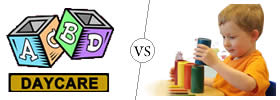Difference between Adjective and Adverb
Key difference: Adjectives and adverbs are part of the eight parts of speech. However, they differ in the manner in which they are used. Adjectives are words that are used to describe or modify a noun or a pronoun. It may describe, identify, or quantify the thing or person. An adverb is essentially any word or words that are used to describe or modify a verb, adjective, or another adverb.

Adjectives and adverbs are part of the eight parts of speech. However, they differ in the manner in which they are used. Adjectives are words that are used to describe or modify a noun or a pronoun. It may describe, identify, or quantify the thing or person.
Dictionary.com defines adjectives as “any member of a class of words that modify nouns and pronouns, primarily by describing a particular quality of the word they are modifying, as wise in a wise grandmother, or perfect in a perfect score, or handsome in He is extremely handsome. Other terms, as numbers (one cup; twelve months), certain demonstrative pronouns (this magazine; those questions), and terms that impose limits ( each person; no mercy) can also function adjectivally, as can some nouns that are found chiefly in fixed phrases where they immediately precede the noun they modify, as bottle in bottle cap and bus in bus station. Synonyms: modifier, qualifier, identifier, describer, describing word.”
An adverb, on the other hand, is defined as, “any member of a class of words that function as modifiers of verbs or clauses, and in some languages, as Latin and English, as modifiers of adjectives, other adverbs, or adverbial phrases, as very in very nice, much in much more impressive, and tomorrow in She'll write to you tomorrow. They relate to what they modify by indicating place (I promise to be there), time (Do your homework now!), manner (She sings beautifully), circumstance (He accidentally dropped the glass when the bell rang), degree (I'm very happy to see you), or cause (I draw, although badly).”
An adverb is essentially any word or words that are used to describe or modify a verb, adjective, or another adverb. Basically, an adverb is any and all descriptive words or phrases, while an adjective only describes a thing or a person.

Also, an adjective usually follows before the noun, such as ‘a red rose’, whereas an adverb can be anywhere in the sentence, such as ‘a really red rose’ or ‘a red rose that bloomed really fast’ ‘a rose as red as blood.’ This is not always the case, but it can be followed as a general rule of thumb.
Examples of adjectives:
- the tall professor
- a solid commitment
- a month's pay
- a six-year-old child
- the unhappiest, richest man
Examples of adverbs:
- the really tall professor
- a very solid commitment
- an entire month's pay
- a very hungry six-year-old child
- the world’s most unhappiest, richest man
- I really don't believe him.
- He literally wrecked his mother's car.
- She simply ignored me.
- They're going to be late, for sure.
- The teacher completely rejected her proposal.
- I absolutely refuse to attend any more faculty meetings.
- They heartily endorsed the new restaurant.
- I so wanted to go with them.
- We know this city well.
- I kind of like this college.
- Joe sort of felt betrayed by his sister.
- His mother mildly disapproved his actions.
- We can improve on this to some extent.
- The boss almost quit after that.
- The school was all but ruined by the storm.
Image Courtesy: uleth.ca, education.com









Add new comment